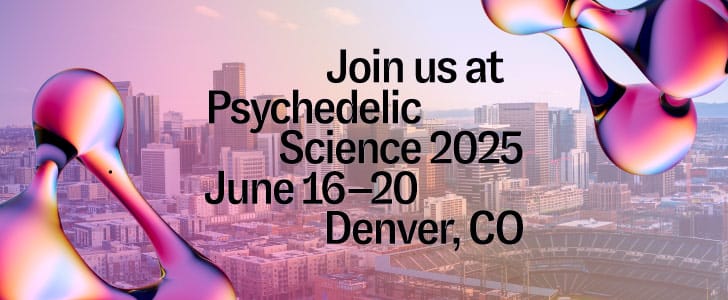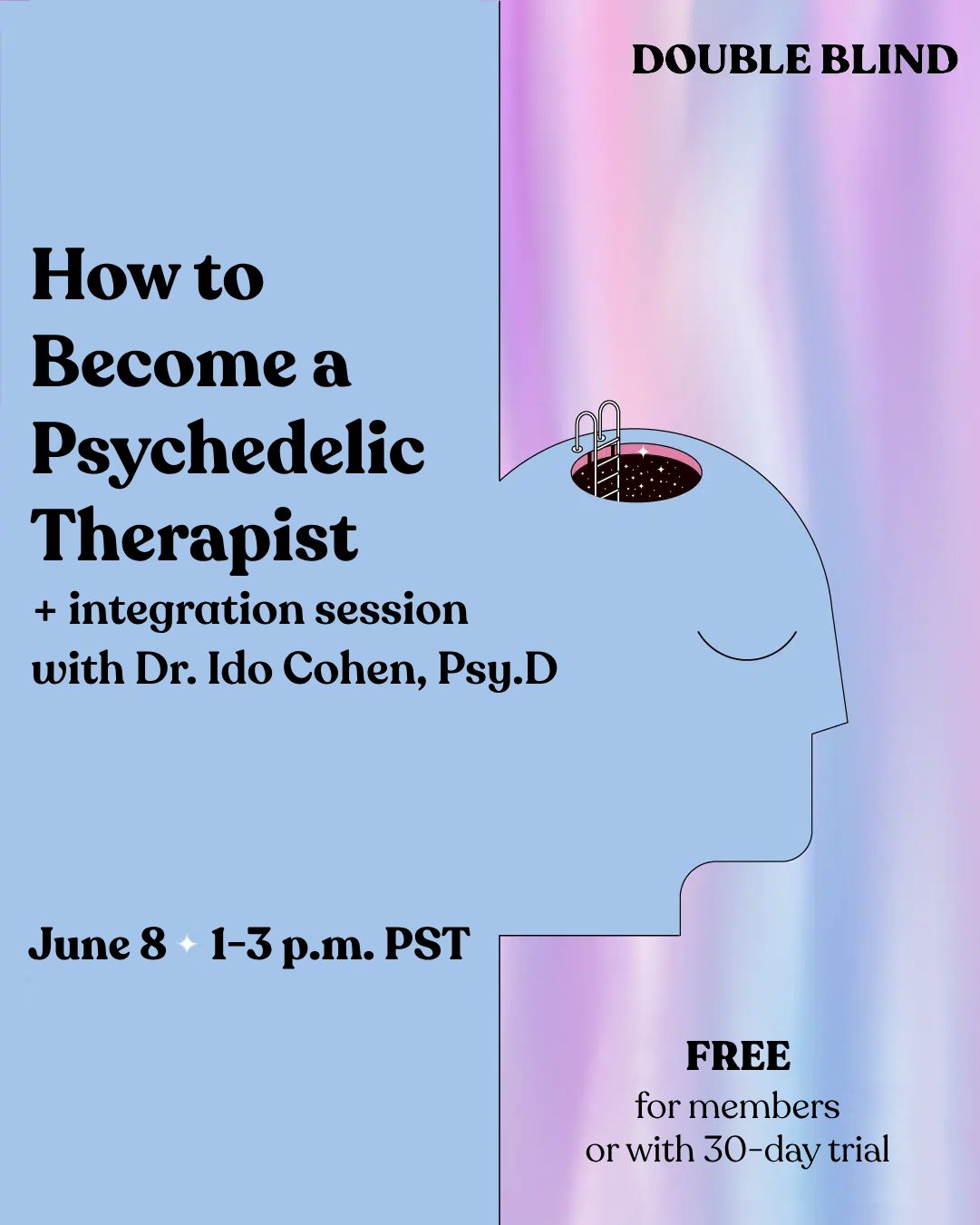

Your weekly dose of
psychedelic insights and news

DEA Grants Church of Gaia Religious Exemption With No Lawsuit Required
The ayahuasca church is officially the first to receive religious exemption from the Controlled Substances Act without taking the DEA to court.
By Mary Carreón
In a historic first, the Drug Enforcement Administration (DEA) has granted the Church of Gaia religious exemption from the Controlled Substances Act, allowing the Washington-based church to legally serve ayahuasca to its members. The exemption, issued on May 16, 2025, marks an unprecedented moment: It’s the first time the agency has approved a church through its petition process without being dragged into court.
The Church of Gaia joins a small but growing group of legally recognized ayahuasca churches in the U.S., including União do Vegetal (UDV), Santo Daime, the Church of the Celestial Heart, and the Church of the Eagle and the Condor. But unlike its predecessors, Gaia didn’t sue. It navigated the notoriously opaque petition process and made it out the other side with approval from the DEA to serve ayahuasca.
“To my knowledge, this is the first time the DEA has granted a religious exemption to a psychedelic church that went through the petition process and didn't file a lawsuit,” says Taylor Loyden, attorney from Terrapin Law Firm. “So, it’s pretty groundbreaking from that standpoint... It sets a new path forward for others who don’t want to litigate.”
Continue reading after our partner message below.
Together With Psychedelic Science
Psychedelic Science 2025 is happening.
More than just a conference, it’s a global gathering of researchers, clinicians, policymakers, and curious minds committed to understanding and advancing the field of psychedelics.
Over five days in Denver, you’ll find cutting-edge research, nuanced conversation, and practical tools across 10+ stages, two days of workshops, and an entire city block of curated experiences. From early findings in neuroscience and mental health to deep dives into culture, ethics, and policy; from pre-conference festivities with Reggie Watts and Flying Lotus to bunny yoga breaks and a Tycho concert… We hope you’ll join us in Denver for a magical week.
Join the Integration.
Previous churches have sparred with the feds for legal recognition through multi-year lawsuits, costing sky-high court fees. When União do Vegetal earned its exemption, it took the DEA all the way to the Supreme Court. Santo Daime followed a similar trajectory. As did the Church of the Eagle and the Condor, which received its exemption in the first half of 2024. Other newer churches, like the Church of the Celestial Heart, received its official exemption on May 5, 2025. Until now, the message was clear: To win religious exemption from the CSA, you had to take the DEA to court.
Connor, the Church of Gaia’s founder, tells DoubleBlind that paying soul-sucking legal fees over a long, drawn-out battle with the DEA was never the strategy. “We didn’t have the money to pursue a lawsuit against the DEA,” Conor says. “So we just did it by the book, step by step, and hoped that the law would be enough.” For perhaps the first time, the process functioned as advertised.
But why now? And why Church of Gaia?
Loyden says there’s not a clear-cut answer to that question. With a laugh, she says that some of it might be, in part, due to timing, coupled with the right set of facts and a nuanced legal strategy. But, when you consider how many churches took the DEA to court and the subsequent media scrutiny lamenting the petition process, it’s possible the agency shifted its approach. “We did everything right. We dotted every i, crossed every t, answered every follow-up, played by the rules,” she says. “And for once, that actually worked.”
And crucially, the church wasn’t serving medicine while the petition was under review — a key requirement that many argue is unconstitutional, but one that the DEA continues to enforce. “There’s a strong argument that rule violates religious freedom,” Loyden says.
What also made a difference was tone. From the start, the legal strategy — developed by Terrapin Legal’s Pat Donahue — was built on cooperation, not confrontation. “We didn’t come in swinging,” Loyden says. “We built a relationship with them. We educated them on areas they didn’t understand, particularly around the spiritual components, which they’re not trained to evaluate. And we compromised when it made sense.”
Not on everything, though. When the DEA suggested that all unused ayahuasca be destroyed after ceremony, the Church of Gaia refused. “We said absolutely not, this is a sacrament,” Loyden says. “It is sacred. It is not something we’re willing to sacrifice or compromise on. But we are willing to work with you on storage and tracking protocols so that you feel comfortable with our system, and we can demonstrate that it’s secure.”
While the Religious Freedom Restoration Act (RFRA) doesn’t directly say people can use psychedelics, it does make it harder for the government to interfere with sincere religious practices. If the government wants to block a church from facilitating its sacrament (say, mushrooms or ayahuasca), they have to prove they have a valid reason and that they’re enforcing the law in the least harmful way possible.
But the DEA — an agency designed to enforce drug prohibition — is still tasked with deciding which plant medicine churches qualify, or are “sincere” in their practices. The result is a bureaucratic bottleneck that often leaves spiritual communities in legal limbo, burdening them with the fear that comes with handing over sensitive information to the federal government.
“The DEA is not in the business of deciding whose religion is valid or not valid,” Loyden says. “That’s not their job, that’s not their expertise, and it never has been.”
If this moment signals anything, it’s that the legal landscape is evolving. The wall between religious freedom and drug prohibition still exists, but cracks are forming. And now, for the first time, there’s a path through it that doesn’t lead straight to court.
Together With Psychedelic Science
Psychedelic Science 2025 takes place June 16-20 in Denver.
With 500+ speakers, 10+ stages, and five full days of programming and off-site activities ranging from Reggie Watts to celebrating Sasha Shulgin’s 100th birthday, it is the psychedelic event of the year.
Join the Integration.
How was today's Dispatch?
💌 If you loved this email, forward it to a psychonaut in your life.
Editorial Process
DoubleBlind is a trusted resource for news, evidence-based education, and reporting on psychedelics. We work with leading medical professionals, scientific researchers, journalists, mycologists, indigenous stewards, and cultural pioneers. Read about our editorial policy and fact-checking process here.





